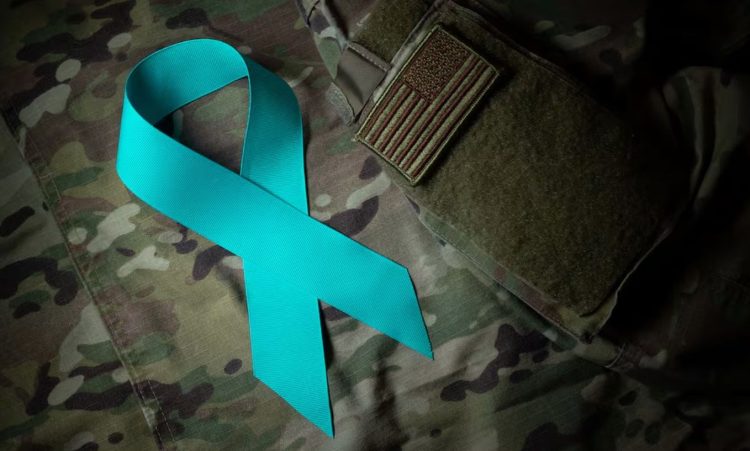Recently, I had the opportunity to speak at a veterans event in Florida for the fourth time. This annual engagement is something I deeply value, as it allows me to participate in an organization dedicated to supporting our veterans. Each year, I am honored to contribute to discussions that significantly affect the lives of those who have served.
This year, my focus was on military sexual trauma (MST) and its profound impact on service members and their families. As I shared my insights, an individual—whose name I won’t mention but who is known as a former Navy SEAL, lawyer, and organizer of a swim event—interrupted me with a comment reflecting his disbelief: he claimed he had never witnessed such issues. In response, I noted that it was fortunate he had not encountered these problems, but they undoubtedly exist.
In that moment, several women in the audience courageously shared their experiences as victims of MST. Rather than reflecting on their testimonies, the Navy SEAL dismissed my comments, labeling me a “liberal hack job.”
His outburst elicited discontent among the audience, leading security personnel to intervene and ask him to quiet down.
The Urgent Need for Addressing Military Sexual Trauma
The incident highlighted a critical truth: sexual harassment and sexual assault are real and pervasive problems within the military. These issues demand urgent attention and resolution from our leaders. Unfortunately, the existing programs designed to combat sexual harassment have proven largely ineffective. The consequences of military sexual trauma extend far beyond the immediate incidents; they often lead to suicide, addiction, post-traumatic stress (PTS), and a host of both physical and psychological issues for the victims.
I found myself deeply disappointed by the response of this former Navy SEAL. Disagreement is a natural part of any discussion, but it must be accompanied by respect. While his disrespect toward me was disheartening, it was even more troubling to witness the disregard he showed to every individual in the room who had endured military sexual trauma, including a veteran who had previously described being sexually assaulted and continues to grapple with its aftermath.
This situation reflects a broader issue within our society: a growing divisiveness and lack of respect for one another. It is imperative that we foster an environment where civil dialogue is possible, irrespective of differing perspectives. Our words have consequences, and we must be mindful of the impact they can have on others.
Creating a Culture of Respect and Support Among Veterans
As veterans, we must hold ourselves to a higher standard. If we expect support and understanding from the public and our leaders, we must first extend that respect to one another. The path toward healing and progress is paved with mutual respect and understanding. It is time to embrace civil discourse and work collaboratively toward solutions that uplift one another and create a supportive community. Our collective experiences, both the triumphs and the tribulations, shape us into stronger advocates for change. When we engage in conversations with empathy and consideration, we not only honor those who have suffered but also empower ourselves to effect real, positive change.
Moreover, the challenges faced by veterans are often intertwined with societal perceptions and stigmas. The willingness to speak openly about difficult topics such as military sexual trauma is crucial. It encourages those who have suffered in silence to find their voice and seek help. Each story shared creates a ripple effect, fostering an environment where vulnerability is not seen as weakness but as a courageous step toward healing.
The disrespectful comments made by the former Navy SEAL serve as a reminder that we must be vigilant in promoting understanding and compassion within our ranks. It is essential to create spaces where all veterans feel safe to share their experiences, knowing they will be met with respect and validation. Our community should stand as a beacon of support, demonstrating that we can disagree on issues while still treating one another with dignity.
If we truly aspire to lower the rates of suicide, addiction, and homelessness among veterans, we must look inward and address the culture within our community. This involves recognizing that our individual experiences do not define the collective reality of military service. Just because one person may not have encountered sexual harassment or assault does not negate the lived experiences of countless others. The military ethos of camaraderie and support should extend beyond the battlefield and into our discussions about sensitive topics.
Already have an account? Sign In
Two ways to continue to read this article.
Subscribe
$1.99
every 4 weeks
- Unlimited access to all articles
- Support independent journalism
- Ad-free reading experience
Subscribe Now
Recurring Monthly. Cancel Anytime.
In conclusion, the need for respectful dialogue among veterans cannot be overstated. We must strive to foster an environment where open conversations can thrive, even when they challenge our perspectives. By doing so, we honor the sacrifices made by our fellow service members and contribute to a culture of healing and understanding. If we, as veterans, expect others to recognize our struggles and offer support, we must first model the respect and compassion we wish to receive.
Let us commit to creating a community that values every voice, acknowledges every experience, and fosters a culture of respect. Together, we can ensure that every veteran feels heard, supported, and empowered to overcome the challenges we face. Only through united efforts can we hope to create meaningful change and build a future where every veteran can thrive.
Donald C. Bolduc










COMMENTS